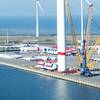The International Maritime Organization (IMO) held its 43rd session of the Marine Environmental Protection Committee (MEPC) from June 28th through July 1st. Delegates to the MEPC were expected to consider a proposal to ban the application of tributyltin (TBT) self-polishing copolymer paints by the year 2003.
At the previous MEPC session in November 1998, delegates prepared a draft resolution that calls for a ban on the application of TBT by 2003 and a ban on its use by 2008. These dates were designated based on the assumption that viable alternatives would be available on the market. However, since November, serious questions have been raised concerning the possible adverse environmental effects and the availability of suitable alternative paints.
Unfortunately, it is highly unlikely that any product equal in effectiveness or longevity (with a 60-month guaranteed painting interval) to TBT-based paints will be available for use by January 1, 2003. At the last meeting of the U.S. delegation to the MEPC in May, several ship companies produced evidence that existing alternatives yield poor results, and environmental data on alternative biocides is very limited, with the potential environmental risks still unknown.
In the U.S. existing alternative paints do not meet Volatile Organic Compounds (VOC) emissions restrictions, and notably reformulation of those paints to meet existing regulation would take-up to five additional years of field-testing in order to demonstrate effectiveness.
In contrast, TBT is VOC-compliant, and numerous long-term studies confirm that levels of TBT in water, sediments, and aquatic life continue to decline. Current data indicates that regulations have been successful in limiting the levels of TBT.
The Executive summary provided at the conference states, "In addressing the proposal to ban the use of all TBT-based paints in 2003, the IMO must consider the potential adverse effects of a premature ban. An increase in the usage of unproven alternative anti-fouling systems could lead to the following: Increase in invasive species, which lead to serious environmental and economic damage, higher fuel consumption leading to an increase in air pollution, accelerated levels of blasting ship hulls in order to comply with the 2003 date, higher emission levels of Volatile Organic Compounds (Voices) released into the air and higher levels of copper released into the environment.
Key Points Addressed About the Proposed Ban of 2003
Research shows that current regulations were successful: TBT-Free Association Paints (into which the TBT is physically mixed) were replaced by TBT-Self Polishing Copolymer paints (where TBT is chemically bound in the paint matrix) and the use of TBT Free-Association Paints has more or less stopped. Self Polishing Copolymer paints have a low TBT leeching rate. Regulations related to the handling of paint residues have also had a positive impact on the environment. Another issue is the transportation of species into non-native marine waters. These organisms are transported by ship hulls and in ship ballast water. An increase in invasive species will result in serious damage to ecosystems and fishing industries worldwide. TBT Self Polishing Copolymer paints help prevent invasive species problems, while less effective systems will inadvertently increase the incidence of invasive species.
Sponsored Content
Innovative Hull Maintenance: Profitable & Green

Subscribe for
Maritime Reporter E-News
Maritime Reporter E-News is the maritime industry's largest circulation and most authoritative ENews Service, delivered to your Email five times per week












